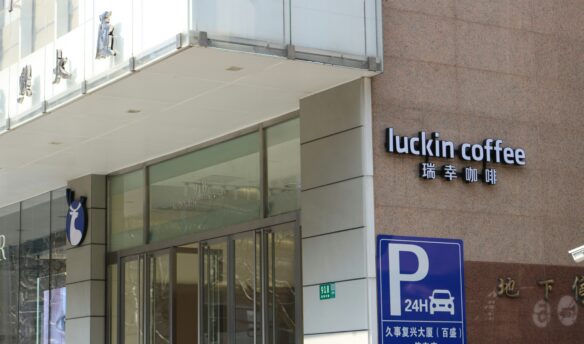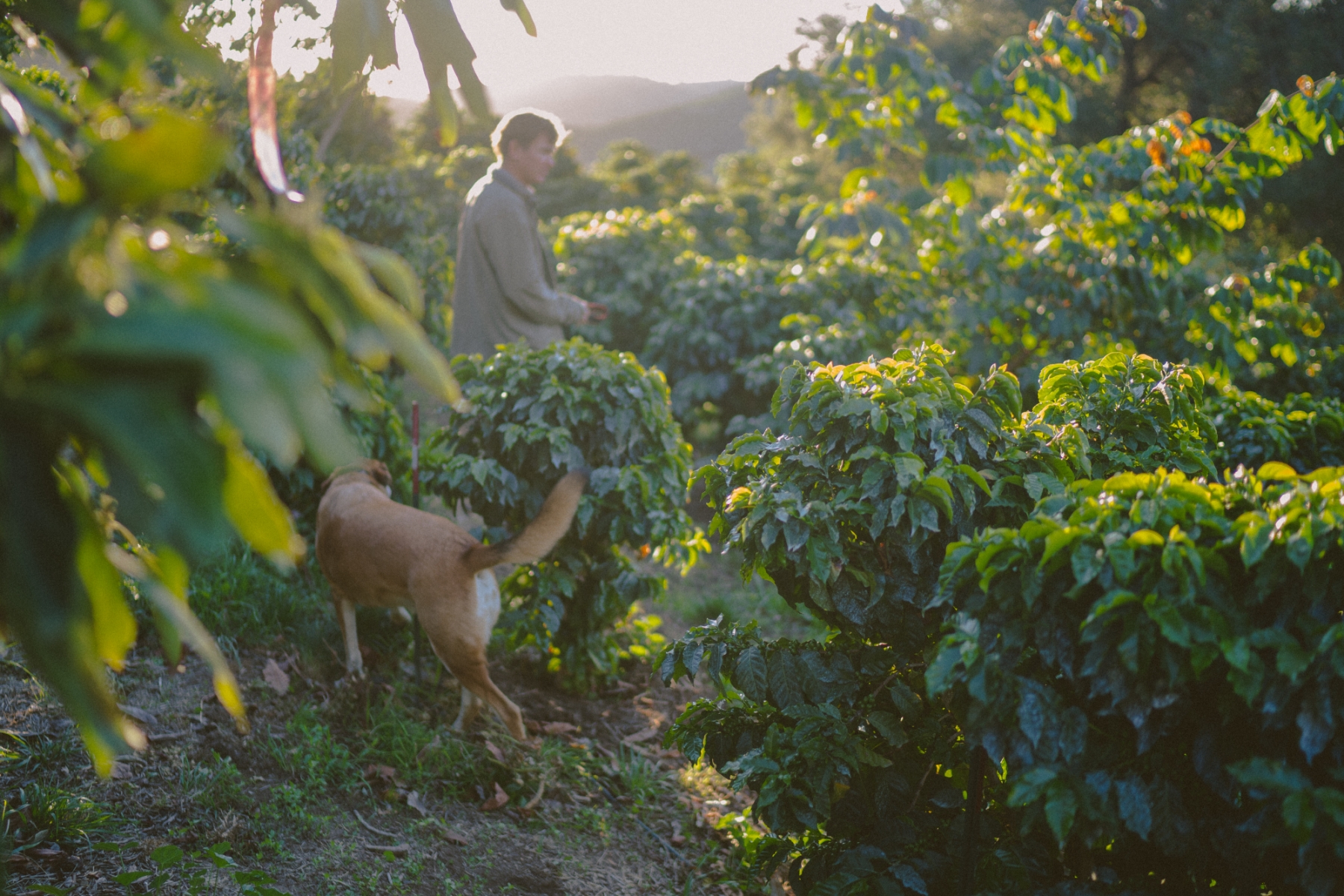Rest in peace, Oleato. Plus, researchers protest a plan to sell off part of a vital Brazilian research farm, and China’s Luckin Coffee eyes expansion to the US.
‘São Paulo Government Moves to Sell Part of IAC’s Historic Coffee Farm’ – via Valor International
The government of São Paulo is looking into selling thousands of acres of Fazenda Santa Elisa, a key part of the Agronomic Institute of Campinas (IAC), according to the Association of Scientific Researchers of the State of São Paulo (APqC).
Fazenda Santa Elisa is home to Brazil’s largest coffee germplasm bank, Fernanda Pressinott reports for Valor International. The farm also houses unique specimens of key coffee species, including some of the world’s oldest arabica plants.
The São Paulo Department of Agriculture said they’re merely conducting studies to assess the feasibility of selling the land. But APqC fears the move is part of a broader push to sell off “financially burdensome” properties, Pressinott writes.
A historically significant coffee region, São Paulo is also Brazil’s most populous state, with expanding cities beginning to encroach on farmland. The farm is vital to coffee scientists, and experts describe Fazenda Santa Elisa’s germplasm bank as “a living archive of coffee genetic material.” However, the farm’s prime location within the growing city of Campinas puts it at risk of development.
“At a time of climate emergency, instead of relinquishing these areas, we should be expanding research and conservation efforts,” said Helena Dutra Lutgens, president of APqC. Researchers are worried about the bank’s future, noting that they haven’t been consulted about transferring plants should the farm be sold.
The IAC has been a vital center of coffee research in Brazil for decades, according to Flávio Borém, a professor at Federal Lavras University. “The world owes a great deal to the IAC. Many of the coffee varieties consumed globally originated from the institute’s work. The germplasm bank is invaluable.”
‘Cup of Excellence Celebrates 25th Anniversary in Brazil’ – via Global Coffee Report
In 1999, the Cup of Excellence (CoE) held its inaugural contest in Brazil. This year, the green coffee competition and auction is celebrating its 25th anniversary in the country where it began.
Over the past 25 years, CoE has raised the profile of smallholder coffee farmers, showcased the best specialty coffee from previously unknown regions, and helped the industry shift to focus more on quality. One of CoE’s original goals was to “find ways to produce higher quality [coffees] and higher prices simultaneously,” co-founder George Howell told Daily Coffee News in 2019.
The first CoE took place in Brazil and was organized by the Brazilian Specialty Coffee Association (BSCA). Their aim was to improve the image of the country’s coffee, which at the time was still “known for quantity over quality,” Maja Wallengren told Global Coffee Report in an article about the history of CoE. The CoE emerged from the Gourmet Coffee Project, run by the International Coffee Organization from 1997-2000, which “focused on what efforts lesser-known origins or producing countries could take to improve their quality in order to get access to the specialty market,” Wallengren writes.
The competition has since expanded to over a dozen coffee-producing countries. CoE-winning coffees have fetched high prices at auction, and year after year, winning lots set new precedents and break previous records for the price paid per coffee.
“This competition has transformed the perception of specialty coffee and significantly elevated the value of coffee origins,” said Vinicius Estrela, Executive Director of the BSCA. “We are thrilled to have contributed to this journey over the past 25 years, enhancing the production of high-quality and sustainable coffee.”
According to farmer and CoE co-founder Marcelo Vieira, the competition has helped producers improve quality while giving them access to new markets.
In designing the competition, Vieira and colleagues sought to figure out what would set CoE coffees apart from other commercially available beans. “We learned that quality is the key, and we should encourage our producers to focus on quality rather than quantity,” he said. “The competition was a great way to achieve this while satisfying international buyers, allowing Brazil to gain recognition for its superior quality.”
‘Report: China’s Largest Coffee Chain Luckin Prepping US Launch’ – via Daily Coffee News
Not content with beating Starbucks at home, Luckin Coffee, the fast-growing Chinese chain, is planning to launch in the United States. The move, first reported by Eleanor Olcott and Gregory Meyer for the Financial Times, will focus on opening stores in “cities with large numbers of Chinese students and tourists such as New York.”
As a low-overhead and low-cost chain, Luckin has grown quickly and overtook Starbucks by store count in China in 2019, bringing in more revenue than the Seattle-based company in 2023. Luckin also inspired investors to pour money into China’s coffee market, fueling the expansion of numerous competitors and further denting Starbucks’ market share.
While the increase in new, low-cost chains has been good for customers as brands battle for market share, it has put enormous pressure on baristas who get reprimanded and face pay cuts if efficiency targets are not met.
As Olcott and Meyer report, Luckin is “laying the groundwork for a US launch as early as next year, building out its supply chain and customising its technology for the market, according to two people with knowledge of the matter.” The company plans to undercut its rivals by selling drinks for $2 or $3 and has been running ads during NBA games to increase name recognition. Luckin declined to give comment for the story.
While competition among coffee chains in China is intense, it is also increasing in the US: we’ve recently brought you stories about upstart coffee companies taking on Starbucks by focusing on customizable cold drinks, while more established brands are emphasizing value to attract customers. Luckin, it turns out, excels at both of these things.
‘Starbucks Abandons the Olive Oil Coffee That Was the Brainchild of Its Former CEO’ – via CNN
Farewell, Oleato. The olive oil-infused latte, thrust upon an unsuspecting public by former Starbucks CEO Howard Schultz, is being phased out.
As Jordan Valinsky for CNN reports, the line of olive oil-based drinks will soon disappear from Starbucks as part of a drive to simplify a menu that its new CEO, Brian Niccol, called “overly complex.” (The current menu features literally billions of customizable drink options.) The Oleato’s arrival in early 2023 was “one of the biggest launches we’ve had in decades,” according to then-chief marketing officer Brady Brewer.
Schultz came up with the concept for the Oleato during a trip to Italy, where he observed locals consuming a tablespoon of olive oil every day for health reasons. Schultz, who described the drink as having “an unexpected, velvety, buttery flavor that enhanced the coffee and lingers beautifully on the palate,” expected it to “disrupt the industry.”
It did not do that. Reviews were decidedly negative, with some customers reporting intestinal distress after partaking in the oily beverages. Then, it was revealed that Schultz partly owned Starbucks’ exclusive olive oil supplier. The company paid Partanna Olive Oil, where Schultz indirectly held a roughly 19% ownership interest, over $26 million between 2022 and 2023.
The drink’s demise is part of Starbucks’ ongoing reinvention strategy after falling sales and several unremarkable quarterly reports. On his first earnings call with analysts, Niccol laid out plans to make stores more inviting, including adding comfy chairs and ceramic mugs.
Part of his goal is to reclaim Starbucks’ identity as a “third place” and to focus on drink quality and efficiency. “We are going to be a great craft coffee company that has really good throughput,” he said.
Part of that drive for efficiency includes reducing the number of drink options, and it seems like the Oleato is first in line for retirement.
More News
‘FairWave Specialty Coffee Collective Acquires Ceremony Coffee Roasters’ – via Sprudge
‘SCA Announces Educator Summit 2024 Series Event Locations’ – via Global Coffee Report
‘The Nero Group Bolsters UK Portfolio with 200 Degrees Coffee Acquisition‘ via World Coffee Portal
‘Coffee Regions in Vietnam Soaked by Tropical Storm Trami as Harvest Starts’ – via Bloomberg
‘Starbucks to Remove Extra Charge for Non-Dairy Milk‘ – via Global Coffee Report
‘2025 World Coffee Roasting Championship Rules Released‘ – via Bean Scene Magazine
‘Vietnamese Coffee Industry Sets New Revenue Record‘ – via Vietnam Investment Review
‘G7 Endorses Global Coffee Sustainability and Resilience Fund’ – via Global Coffee Report
Coffee and the Climate Crisis
Studies have shown that working from home can lower an office worker’s carbon footprint by up to 54%. In 2020, as more people worked from home due to the COVID-19 pandemic, global emissions fell by 7%, only to rebound a year later when people began to return to their offices.
Starbucks, which is very vocal about its environmental goals and plans to reduce emissions, has decided that beginning in January, its 3,500-strong corporate workforce must return to the office at least three days per week. And if they don’t? Consequences could be “up to, and including, separation,” according to an internal memo reported on by Daniela Sirtori and Matthew Boyle for Bloomberg News.
When he was first hired, new CEO Brian Niccol told employees “they should work wherever they need to in order to get their jobs done, but that he thought that place was usually the office,” Sirtori and Boyle write. When ex-CEO Howard Schultz attempted a similar move in early 2023, dozens of corporate workers signed an open letter in protest.
Meanwhile, Niccol’s own commute is 1,000 miles and involves flying by private corporate jet from his home in California to Seattle. A 2021 report found that private jets cause 14 times more pollution than commercial aircraft per passenger and 50 times more than trains.
Niccol’s commute drew criticism from climate activists and customers. Greenpeace activist Clara Thompson told the Washington Post, “These jets are a stark symbol of social and climate injustice, where a privileged few indulge in the most environmentally damaging form of travel for mere convenience.”
Beyond the Headlines
‘I Claim To Hate Espresso Martinis, but I Can’t Stop Thinking About Them’ by Ashley Rodriguez
“Do What’s Right and Create Beauty’: Insights From the 2024 Austin Coffee Festival’ by Lydia Stolper








